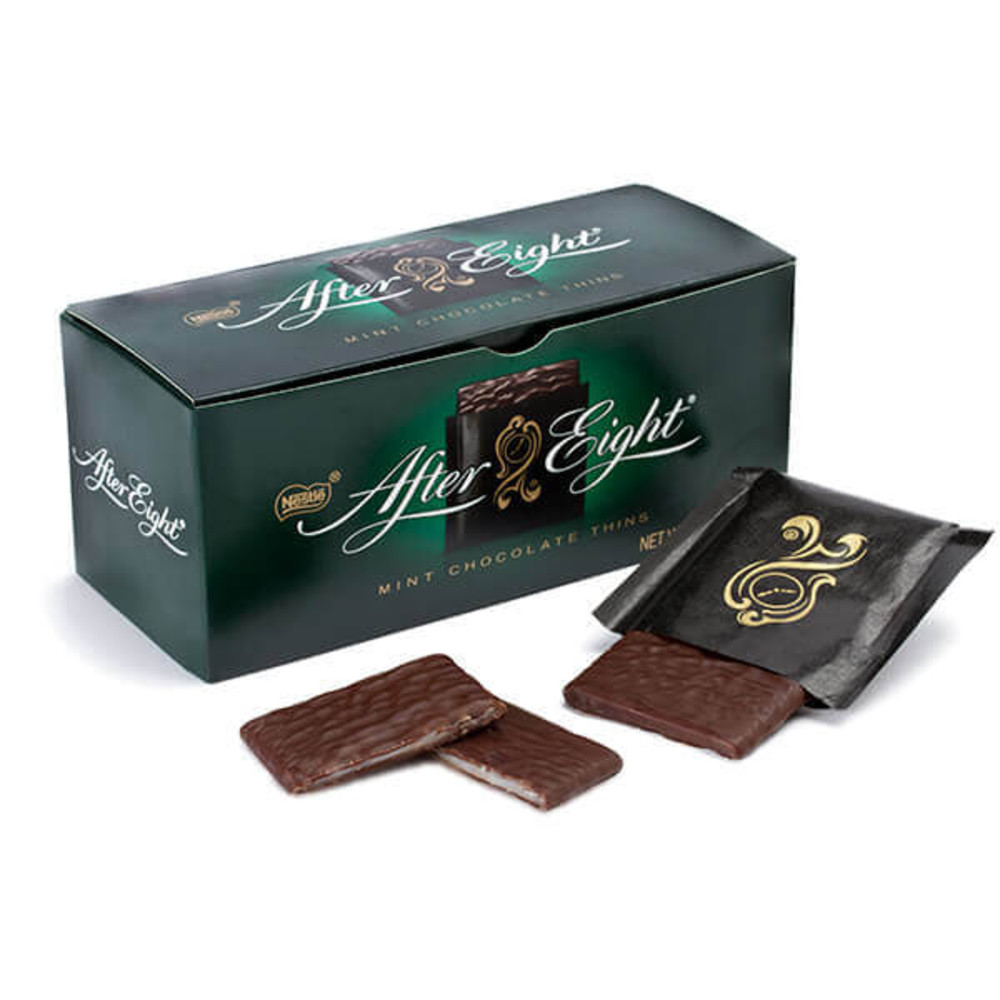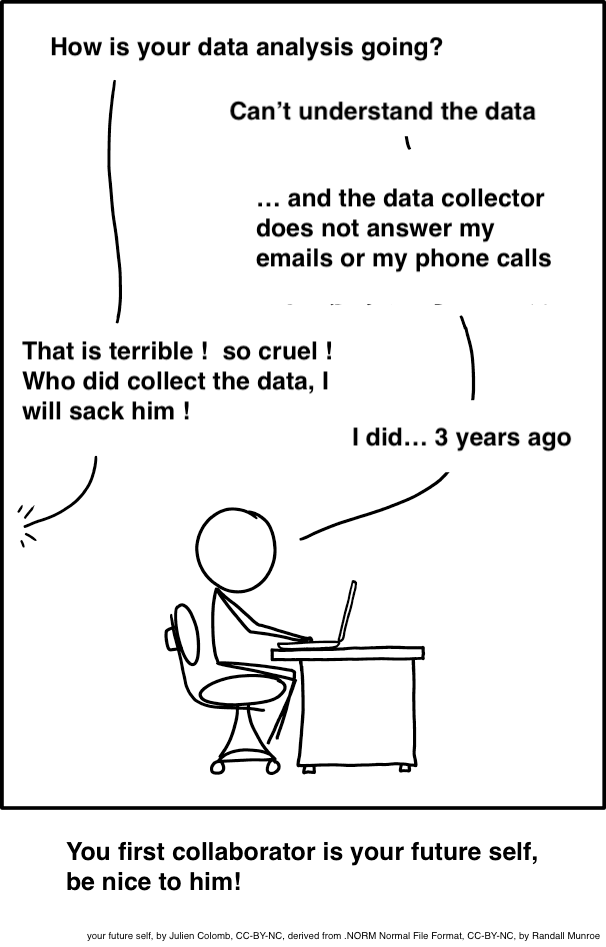usethis::edit_r_profile()📦
Building tidy tools
Day 1 Session 1: 👋 & The Whole Game
Invalid Date
👋 Welcome
Introductions
This is a two-day, hands-on workshop for those who have embraced the tidyverse and want to build their own packages.
- Have you written a few of your own R functions?
- Are you ready to start sharing your code (or data) through R packages?
- Are you curious what you can do to make your first R packages easy for your users to use, and for you to maintain?
WiFi
- Username:
conf22 - Password:
together!
The team
Standing on the shoulders of Building Tidy Tools, rstudio::conf(2020) (C. Wickham and Wickham 2021), R Packages (H. Wickham and Bryan 2020)
WiFi
- Username:
conf22 - Password:
together!
Introductions
To each other! With help from Yorkshire!

Ingredients: Sugar, Glucose syrup, Cocoa mass, Vegetable fats (Palm, Rapeseed, Sunflower, Coconut,Mango kernel/ Sal/ Shea), Sweetened condensed skimmed milk (Skimmed milk, Sugar), Cocoa butter, Dried whole milk, Glucose-fructose syrup, Coconut, Lactose and proteins from whey (from Milk), Whey powder (from Milk), Hazelnuts, Skimmed milk powder, Butter (from Milk), Emulsifiers (Sunflower lecithin, E471), Flavourings, Butterfat (from Milk), Fat-reduced cocoa powder, Salt, Lactic acid.

Ingredients: Sugar, Semi-Sweet Chocolate (Sugar, Chocolate, Cocoa Butter, Milkfat, Soy and Sunflower Lecithin, Natural Vanilla Flavor), Glucose Syrup, Peppermint Oil, Citric Acid, Invertase.

Ingredients: Sugar, Glucose Syrup, Starch, Acids (Malic Acid, Citric Acid, Lactic Acid), Concentrated Fruit Juices (1%) (Apple, Grape, Blackcurrant, Orange, Lemon, Lime, Strawberry), Acidity Regulator (Trisodium Citrate), Flavourings, Naturally Sourced Colours (Anthocyanins, Copper Complexes of Chlorophyllins, Carotenes, Curcumin).
Code of Conduct
Full Code of Conduct & COVID. Please Review
- 😷 Please wear a mask
- 💙 Treat everyone with respect
- 🧡 Everyone should feel welcome
Reporting:
- 🗣️ any rstudio::conf staff member, Elliot is our contact
- 📧
conf@rstudio.com - ☎️ + 1 844-448-1212
Housekeeping
- WiFi:
- Username:
conf22 - Password:
together!
- Username:
- Gender neutral bathrooms by the National Harbor rooms.
- The meditation room is at National Harbor 9. Open 8am - 5pm, Monday - Thursday. The hotel also has a dedicated room behind the reception.
- The lactation room is located at Potomac Dressing Room. Open 8am - 5pm, Monday - Thursday.
- Participants who do not wish to be photographed have red lanyards, please note lanyard colors before taking a photo and respect their choices.
🙏 to
the TAs
colleagues, friends and learners at Schneider Electric, University of York and RForwards!
RStudio team and especially Mine Çetinkaya-Rundel
- Ian!
Prerequisites
You need a laptop with the following installed:
- R version >= 4.1 and RStudio >= 2022.02.1
- R package development toolchain: Rtools(windows) or XCode (mac) or r-base-dev
- The following packages:
devtoolsandbtt22 - Git
- GitHub account linked to RStudio
🎬 Detailed instructions for installing these are covered in Prerequisites
Day 1
| Time | Activity |
|---|---|
| 09:00 - 10:30 | Session 1: Introduction & whole game |
| 10:30 - 11:00 | ☕ Coffee break |
| 11:00 - 12:30 | Session 2: Documentation - Minimal |
| 12:30 - 13:30 | 🍱 Lunch break |
| 13:30 - 15:00 | Session 3: Unit testing |
| 15:00 - 15:30 | ☕ Coffee break |
| 15:30 - 17:00 | Session 4: Documentation - Sharing |
Day 2
| Time | Activity |
|---|---|
| 09:00 - 10:30 | Session 1: Function design |
| 10:30 - 11:00 | ☕ Coffee break |
| 11:00 - 12:30 | Session 2: Side effects |
| 12:30 - 13:30 | 🍱 Lunch break |
| 13:30 - 15:00 | Session 3: Tidy eval |
| 15:00 - 15:30 | ☕ Coffee break |
| 15:30 - 17:00 | Session 4: Functional and Object-Oriented Programming |
How we will work
-
stickies
🟪 I’m all good, I’m done
🟧 I could do with some help
Discord
no stupid questions
🎬 Action! (today)
Learning Objectives
At the end of this section you will be able to:
- Make changes to your
.Rprofileand RStudio set to ease the package writing process - explain the rationale for writing packages
- find and explore their own package library/libraries
- describe the key components of a minimal package
- describe the different states a package can be in
- outline the development of a package using
devtools(H. Wickham et al. 2021) - create a simple version controlled package with a remote repo on GitHub
- use the package interactively with
devtools::load_all() - check package validity with
devtools::check()
🔥 Set up tips
🔥 Global Options
🎬 Tools | Global Options | General
🔲 Restore .RData into workspace at startup: unchecked
Save workspace to .RData on exit: Never
🎬 Tools | Global Options | Code | Display
☑️ Show margin: checked
Margin column 80
🔥 Set up your .Rprofile
The usethis (H. Wickham, Bryan, and Barrett 2022) package allows you to add default information about you that will be used in package development.
🎬 Edit your .Rprofile with usethis::edit_r_profile:
to set the following options….
🔥 Set up your .Rprofile
🔥 Set up your .Rprofile
🎬 Load devtools and testthat (H. Wickham 2011) on start up
if (interactive()) {
suppressMessages(require(devtools))
suppressMessages(require(testthat))
}🎬 Restart R for these to take an effect.
Why make a package?
Why make a package
- makes it easier to reuse functions you write
- have a consistent framework which encourages you to better organise, document and test, your code
- using this consistent framework means you can use many standardised tools
- is the easiest way to distribute code and data
Be nice to future you

Future self: CC-BY-NC, by Julen Colomb, derived from Randall Munroe cartoon
To avoid
Script vs package
Script
Package
- defines reusable components
- defined by presence of
DESCRIPTIONfile - Required packages specified in
DESCRIPTION, made available inNAMESPACEfile - documentation in files and
Roxygencomments - Install and restart
Where packages come from and live?
Where do R packages come from?
CRAN:
install.packages("praise")GitHub:
remotes::install_github("rladies/praise")Bioconductor
BiocManager::install("celaref")Where do packages live?
In a library! In
R.home()[1] "/opt/R/4.2.2/lib/R"The R home directory is the top-level directory of your R installation.
Note: this is not the same as your working directory or your home directory.
Your R installation
list.files(R.home()) [1] "bin" "COPYING" "doc" "etc" "include"
[6] "lib" "library" "modules" "share" "SVN-REVISION"Your library
.Library[1] "/opt/R/4.2.2/lib/R/library"Your library
dir(.Library) [1] "base" "boot" "class" "cluster" "codetools"
[6] "compiler" "datasets" "foreign" "graphics" "grDevices"
[11] "grid" "KernSmooth" "lattice" "MASS" "Matrix"
[16] "methods" "mgcv" "nlme" "nnet" "parallel"
[21] "rpart" "spatial" "splines" "stats" "stats4"
[26] "survival" "tcltk" "tools" "translations" "utils" Explore a package
The ussie package
- We will create a version controlled package called
ussiewith a remote repo on GitHub.
ussie will allow you to work with European football league data supplied by the engsoccerdata package (Curley 2016).
Explore ussie
GitHub is the package in “Source” form
- main code in
R/ - documentation files in
man/andvignettes/ - DESCRIPTION
Package states
Package states
There are five states a package can be in:
source
bundled
binary
installed
in-memory
Package states

Package states
source
bundled
binary
installed
in-memory
What you create and work on.
Specific directory structure with some particular components e.g., DESCRIPTION, an R/ directory.
Package states
source
bundled
binary
installed
in-memory
Also known as “source tarballs”.
Package files compressed to single file.
Conventionally .tar.gz
You don’t normally need to make one.
Unpacked it looks very like the source package
Package states
source
bundled
binary
installed
in-memory
Package distribution for users w/o dev tools
Also a single file
Platform specific: .tgz (Mac) .zip (Windows)
Package developers submit a bundle to CRAN; CRAN makes and distributes binaries
Package states
source
bundled
binary
installed
in-memory
A binary package that’s been decompressed into a package library
Command line tool R CMD INSTALL powers all package installation
Package states
source
bundled
binary
installed
in-memory
If a package is installed, library() makes its function available by loading the package into memory and attaching it to the search path.
We do not use library() for packages we are working on
devtools::load_all() loads a source package directly into memory.
Create a package!
Create a package
The CRAN version of engsoccerdata has data from the start of the league until 2016 for england, germany, holland, italy and spain
BUT the format of the data is not the same for all countries!!
About engsoccerdata
Rows: 192,004
Columns: 12
$ Date <fct> 1888-12-15, 1889-01-19, 1889-03-23, 1888-12-01, 1888-10-13, 1…
$ Season <dbl> 1888, 1888, 1888, 1888, 1888, 1888, 1888, 1888, 1888, 1888, 1…
$ home <fct> Accrington F.C., Accrington F.C., Accrington F.C., Accrington…
$ visitor <fct> Aston Villa, Blackburn Rovers, Bolton Wanderers, Burnley, Der…
$ FT <fct> 1-1, 0-2, 2-3, 5-1, 6-2, 3-1, 1-2, 0-0, 2-0, 2-1, 4-4, 4-3, 6…
$ hgoal <dbl> 1, 0, 2, 5, 6, 3, 1, 0, 2, 2, 4, 4, 6, 6, 4, 4, 2, 9, 0, 5, 2…
$ vgoal <dbl> 1, 2, 3, 1, 2, 1, 2, 0, 0, 1, 4, 3, 1, 2, 2, 2, 1, 1, 2, 1, 0…
$ division <fct> 1, 1, 1, 1, 1, 1, 1, 1, 1, 1, 1, 1, 1, 1, 1, 1, 1, 1, 1, 1, 1…
$ tier <dbl> 1, 1, 1, 1, 1, 1, 1, 1, 1, 1, 1, 1, 1, 1, 1, 1, 1, 1, 1, 1, 1…
$ totgoal <dbl> 2, 2, 5, 6, 8, 4, 3, 0, 2, 3, 8, 7, 7, 8, 6, 6, 3, 10, 2, 6, …
$ goaldif <dbl> 0, -2, -1, 4, 4, 2, -1, 0, 2, 1, 0, 1, 5, 4, 2, 2, 1, 8, -2, …
$ result <fct> D, A, A, H, H, H, A, D, H, H, D, H, H, H, H, H, H, H, A, H, H…Rows: 23,915
Columns: 12
$ Date <chr> "1929-02-10", "1929-02-10", "1929-02-10", "1929-02-10", "1929-…
$ Season <dbl> 1928, 1928, 1928, 1928, 1928, 1928, 1928, 1928, 1928, 1928, 19…
$ home <chr> "Arenas de Getxo", "Espanyol Barcelona", "Real Madrid", "Real …
$ visitor <chr> "Atletico Madrid", "Real Union", "CE Europa", "Athletic Bilbao…
$ HT <chr> "0-2", "1-0", "0-0", "1-1", "0-0", "0-1", "3-0", "0-3", "0-1",…
$ FT <chr> "2-3", "3-2", "5-0", "1-1", "0-2", "1-2", "9-0", "0-3", "3-1",…
$ hgoal <dbl> 2, 3, 5, 1, 0, 1, 9, 0, 3, 5, 3, 3, 1, 0, 2, 1, 2, 3, 2, 2, 3,…
$ vgoal <dbl> 3, 2, 0, 1, 2, 2, 0, 3, 1, 2, 0, 1, 1, 4, 1, 2, 1, 0, 2, 0, 3,…
$ tier <dbl> 1, 1, 1, 1, 1, 1, 1, 1, 1, 1, 1, 1, 1, 1, 1, 1, 1, 1, 1, 1, 1,…
$ round <chr> "league", "league", "league", "league", "league", "league", "l…
$ group <chr> NA, NA, NA, NA, NA, NA, NA, NA, NA, NA, NA, NA, NA, NA, NA, NA…
$ notes <chr> NA, NA, NA, NA, NA, NA, NA, NA, NA, NA, NA, NA, NA, NA, NA, NA…First function
So the first function in our ussie package will turn these in to standard formats:
use only the common columns
give the same column the same data type
Create a package
Be deliberate about where you create your package
Do not nest inside another RStudio project, R package or git repo.
🎬 Create a package:
usethis::create_package("~/Desktop/ussie")✔ Creating 'ussie/'
✔ Setting active project to 'C:/Users/er13/OneDrive - University of York/Desktop/Desktop/rstudio-conf-2022/ussie'
✔ Creating 'R/'
✔ Writing 'DESCRIPTION'
Package: ussie
Title: What the Package Does (One Line, Title Case)
Version: 0.0.0.9000
Authors@R (parsed):
* Emma Rand <emma.rand@york.ac.uk> [aut, cre] (<https://orcid.org/0000-0002-1358-8275>)
Description: What the package does (one paragraph).
License: `use_mit_license()`, `use_gpl3_license()` or friends to
pick a license
Encoding: UTF-8
Roxygen: list(markdown = TRUE)
RoxygenNote: 7.2.0
✔ Writing 'NAMESPACE'
✔ Writing 'ussie.Rproj'
✔ Adding '^ussie\\.Rproj$' to '.Rbuildignore'
✔ Adding '.Rproj.user' to '.gitignore'
✔ Adding '^\\.Rproj\\.user$' to '.Rbuildignore'
✔ Opening 'C:/Users/er13/OneDrive - University of York/Desktop/Desktop/rstudio-conf-2022/ussie/' in new RStudio session
✔ Setting active project to '<no active project>'create_package()
What happens when we run create_package()?
R will create a folder called
ussiewhich is a package and an RStudio projectrestart R in the new project
create some infrastructure for your package
start the RStudio Build pane
create_package()
What happens when we run create_package()?
ussie.RprojDESCRIPTIONprovides metadata about your package.The
R/directory is where we will put.Rfiles with function definitions.NAMESPACEdeclares the functions your package exports and the functions your package imports from other packages.
create_package()
What happens when we run create_package()?
.Rbuildignorelists files that we need but that should not be included when building the R package from source..gitignoreanticipates Git usage and ignores some standard, behind-the-scenes files created by R and RStudio.
Make package a git repo
🎬 Make your package a git repository
usethis::use_git()✔ Setting active project to 'C:/Users/er13/OneDrive - University of York/Desktop/Desktop/rstudio-conf-2022/ussie'
✔ Initialising Git repo
✔ Adding '.Rhistory', '.Rdata', '.httr-oauth', '.DS_Store' to '.gitignore'
There are 5 uncommitted files:
* '.gitignore'
* '.Rbuildignore'
* 'DESCRIPTION'
* 'NAMESPACE'
* 'ussie.Rproj'
Is it ok to commit them?
1: No way
2: Negative
3: I agree🎬 Choose the option that means yes!
🎬 Choose the option that means yes!
Your session will restart.
Put a remote copy on GitHub
🎬 Put on GitHub as a remote repository
usethis::use_github()ℹ Defaulting to 'https' Git protocol
✔ Setting active project to 'C:/Users/er13/OneDrive - University of York/Desktop/Desktop/rstudio-conf-2022/ussie'
✔ Creating GitHub repository '3mmaRand/ussie'
✔ Setting remote 'origin' to 'https://github.com/3mmaRand/ussie.git'
✔ Setting URL field in DESCRIPTION to 'https://github.com/3mmaRand/ussie'
✔ Setting BugReports field in DESCRIPTION to 'https://github.com/3mmaRand/ussie/issues'
There is 1 uncommitted file:
* 'DESCRIPTION'
Is it ok to commit it?
1: Absolutely
2: Nope
3: No🎬 Choose the option that means yes!
🎬 Quick check with:
usethis::git_sitrep()Git config (global)
• Name: 'Emma Rand'
• Email: 'emma.rand@york.ac.uk'
• Global (user-level) gitignore file: 'C:/Users/er13/.gitignore'
• Vaccinated: TRUE
• Default Git protocol: 'https'
• Default initial branch name: 'master', 'main'
GitHub
• Default GitHub host: 'https://github.com'
• Personal access token for 'https://github.com': '<discovered>'
• GitHub user: '3mmaRand'
• Token scopes: 'gist, repo, user, workflow'
• Email(s): 'emma.rand@york.ac.uk (primary)', '7593411+3mmaRand@users.noreply.github.com'
Git repo for current project
• Active usethis project: 'C:/Users/er13/OneDrive - University of York/Desktop/Desktop/rstudio-conf-2022/ussie'
• Default branch: 'main'
• Current local branch -> remote tracking branch:
'main' -> 'origin/main'
GitHub remote configuration
• Type = 'ours'
• Host = 'https://github.com'
• Config supports a pull request = TRUE
• origin = '3mmaRand/ussie' (can push)
• upstream = <not configured>
• Desc = 'origin' is both the source and primary repo.
Read more about the GitHub remote configurations that usethis supports at:
'https://happygitwithr.com/common-remote-setups.html'Add the first function
We will add uss_make_matches()
Functions will go in an .R file.
There’s a usethis helper for adding .R files!
usethis::use_r()
🎬 Create a new R file in your package called matches.R
usethis::use_r("matches")The function?
We want to be able to use the function like this: uss_make_matches(engsoccerdata::italy)
Add the function
🎬 Put the following code into matches:
uss_make_matches <- function(data_engsoc) {
result <-
data_engsoc |>
tibble::as_tibble() |>
dplyr::transmute(
tier = factor(tier, levels = c("1", "2", "3", "4")),
season = as.integer(Season),
date = as.Date(Date),
home = as.character(home),
visitor = as.character(visitor),
goals_home = as.integer(hgoal),
goals_visitor = as.integer(vgoal)
)
result
}Try out your function
Development workflow
In a normal script you might use:
source("R/matches.R")but when building packages we use a devtools approach
Development workflow
Load your package
devtools::load_all()
🎬 Load package with devtools::load_all().
devtools::load_all()Experiment
🎬 Try out the uss_make_matches() function in the console.
uss_make_matches(engsoccerdata::italy)# A tibble: 25,404 × 7
tier season date home visitor goals_home goals_visitor
<int> <int> <date> <chr> <chr> <int> <int>
1 1 1934 1934-09-30 Lazio… US Liv… 6 1
2 1 1934 1934-09-30 Torin… Unione… 3 1
3 1 1934 1934-09-30 Sampi… Bologn… 2 1
4 1 1934 1934-09-30 SSC N… US Ale… 0 1
5 1 1934 1934-09-30 ACF F… AS Roma 4 1
6 1 1934 1934-09-30 Bresc… Juvent… 0 2
7 1 1934 1934-09-30 Inter US Pal… 3 0
8 1 1934 1934-09-30 Pro V… AC Mil… 1 2
9 1 1934 1934-10-07 AC Mi… ACF Fi… 1 1
10 1 1934 1934-10-07 US Li… Inter 1 1
# … with 25,394 more rows🤔 There’s no column for the country - that could be confusing
Update the function
🎬 Change the function so it takes an additional argument which is the name of the country. The country name should be in column called “country”. The aim is to use the function like this:
uss_make_matches(engsoccerdata::spain, "Spain")🎬 Load with devtools::load_all() and try out the updated function.
An answer
uss_make_matches <- function(data_engsoc, country) {
result <-
data_engsoc |>
tibble::as_tibble() |>
dplyr::transmute(
country = as.character(country),
tier = factor(tier, levels = c("1", "2", "3", "4")),
season = as.integer(Season),
date = as.Date(Date),
home = as.character(home),
visitor = as.character(visitor),
goals_home = as.integer(hgoal),
goals_visitor = as.integer(vgoal)
)
result
}Commit and push
Now would be a good time to commit your changes and push them to GitHub
Check your package
Check your package
R CMD check is the gold standard for checking that an R package is in full working order.
It is a programme that is executed in the shell.
However, devtools has the check() function to allow you to run this without leaving your R session.
devtools::check()
🎬 Check your package:
devtools::check()── R CMD check results ───────────────────────────────────── ussie 0.0.0.9000 ────
Duration: 25.1s
❯ checking DESCRIPTION meta-information ... WARNING
Non-standard license specification:
`use_mit_license()`, `use_gpl3_license()` or friends to pick a
license
Standardizable: FALSE
❯ checking dependencies in R code ... WARNING
'::' or ':::' imports not declared from:
'dplyr' 'tibble'
❯ checking R code for possible problems ... NOTE
uss_make_matches: no visible binding for global variable 'tier'
uss_make_matches: no visible binding for global variable 'Season'
uss_make_matches: no visible binding for global variable 'Date'
uss_make_matches: no visible binding for global variable 'home'
uss_make_matches: no visible binding for global variable 'visitor'
uss_make_matches: no visible binding for global variable 'hgoal'
uss_make_matches: no visible binding for global variable 'vgoal'
Undefined global functions or variables:
Date Season hgoal home tier vgoal visitor
0 errors ✔ | 2 warnings ✖ | 1 note ✖man/ is created
Aside: in case of error
On running devtools::check() you may get an error if you are using a networked drive.
This is covered here and can be fixed.
Aside: in case of error
Save a copy of this file:
Save it somewhere other than the ussie directory
Open the file from the ussie project session
Run the whole file
You should now find that check() proceeds normally
── R CMD check results ───────────────────────────────────── ussie 0.0.0.9000 ────
Duration: 25.1s
❯ checking DESCRIPTION meta-information ... WARNING
Non-standard license specification:
`use_mit_license()`, `use_gpl3_license()` or friends to pick a
license
Standardizable: FALSE
❯ checking dependencies in R code ... WARNING
'::' or ':::' imports not declared from:
'dplyr' 'tibble'
❯ checking R code for possible problems ... NOTE
uss_make_matches: no visible binding for global variable 'tier'
uss_make_matches: no visible binding for global variable 'Season'
uss_make_matches: no visible binding for global variable 'Date'
uss_make_matches: no visible binding for global variable 'home'
uss_make_matches: no visible binding for global variable 'visitor'
uss_make_matches: no visible binding for global variable 'hgoal'
uss_make_matches: no visible binding for global variable 'vgoal'
Undefined global functions or variables:
Date Season hgoal home tier vgoal visitor
0 errors ✔ | 2 warnings ✖ | 1 note ✖0 errors v | 2 warnings x | 1 note x
checking DESCRIPTION meta-information … WARNING
Non-standard license specification
✅ Next!checking dependencies in R code … WARNING
‘::’ or ‘:::’ imports not declared
✅ Next!no visible binding for global variables
✅ Tomorrow!
License
Add a license
usethis helps out again!
use_mit_license(), use_agpl_license(), use_ccby_license() etc
🎬 Add a MIT license1 - use your own name!
usethis::use_mit_license("Emma Rand") Read more in Choose a Licence.
use_mit_license()
🎬 What files have appeared?
🎬 How has the DESCRIPTION file changed?
🎬 Run devtools::check() again. Has one of the warnings disappeared?
📦 Woo hoo📦
You made a package!
Commit and push
Now would be a good time to commit your changes and push them to GitHub
Summary
- It is useful to make a package
- it is fairly easy with
devtools - it will help you work more reproducibly
- it is fairly easy with
- Packages can be in one of 5 states:
- source - what you write
- bundled - source compressed to single file, submitted to CRAN
- binary - distribution for users w/o
devtools - installed - a binary that’s been decompressed
- in-memory - installed package that has been loaded
Summary continued
- A minimal package comprises
- a folder which is a package and a RProj
-
DESCRIPTION,NAMESPACE,.Rbuildignore.gitignore -
R/directory for functions
- We add functions with
usethis:use_r() - We use the package interactively with
devtools::load_all() - We use
devtools::check()to executeR CMDcheck - We add a license with
usethis::use_mit_license()